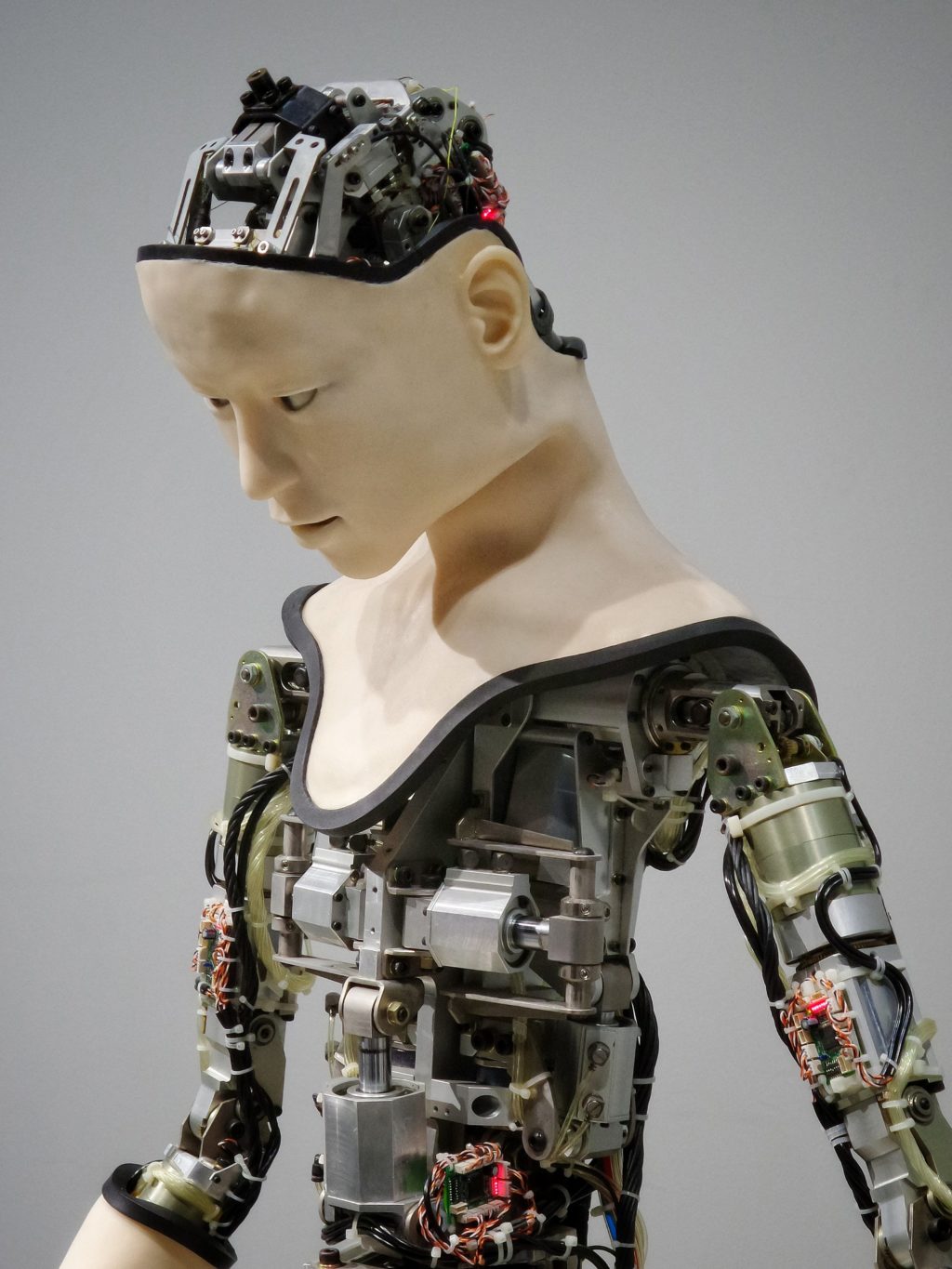
Holding your own in the rise of Artificial Intelligence
Artificial Intelligence is something we’re all experiencing more on a day-to-day basis, cropping up in industries such as retail, healthcare, manufacturing and banking. We experience Artificial Intelligence with passport facial recognition scanners at the airport, self-service checkouts at the supermarkets, virtual home assistants ‘Alexa’ and ‘Google’… the list goes on!
Technology and machinery have provided us with monumental progression. Computers can accurately process information at top speeds, handle and store large amounts of data, and can cope with repetition and strict routine, to name a few. Artificial Intelligence makes it possible for monotonous jobs to be carried out by a non-human, saving human time, energy and money.
So, how do we keep our value (and our jobs!) in the rise of artificial intelligence? The fact is that despite being miles ahead of any human’s technical skills, computers and robotics cannot rival with human interpersonal skills. In fact, they cannot even come close!
The ever-rising threat of a machine-dominated world actually forces us to change our mentality towards work. Society is understanding more than ever the value in human interaction, and the qualities which robots and technology will never be able to achieve. Humans possess empathy, imagination, teamwork, social skills… to name a few! Therefore, there is a growing emphasis on being creative and unique, and acting with more humility and compassion.
Think about the fast-growing phenomenon of self-driving cars. Yes, it is an innovation to marvel at, and may, in the future, replace some of the need for taxi drivers, but to some it seems downright bizarre. As humans, we value personal interactions, and removing this will be unappealing to many.
We believe that new technology will largely adopt more of a supportive role for humans in certain jobs rather than replacing the need for humans altogether. Humans should work with technology to redesign our roles and adapt to include the use of Artificial Intelligence. Just as human jobs we have today didn’t exist 100 years ago, there will be jobs introduced in the future that we didn’t know we had the need for.
Artificial Intelligence is something which Charles Towers-Clark thinks about extensively. In his book, ‘The W.E.I.R.D CEO’, he speaks about the endless ways in which technology is developing, and how it will undoubtedly re-shape industries.
But Towers-Clark focusses on the ways in which we can redesign our work-life to evolve alongside technology. He believes the way to do this is largely to do with compassion and humility. You may remember Towers-Clark from one of our previous blog posts – he is unusual in that he allows his employees to choose their own salaries!
He suggests finding your niche in the workplace. In recent years there has been a shift in society from the idea of work being something to endure to being something to be enjoyed. In allowing Artificial Intelligence to take over, society would be going back on this progress. Whereas Robots and computers just follow a set of instructions, humans are able to have a creative input, and we shouldn’t allow this to be crushed.
Towers-Clark guides his employees to follow the ‘W.E.I.R.D’ process to help their self-development. When they are making a decision, he asks them to consider the following:
Wisdom – “is this wise?”
Emotional Intelligence – “how is this decision going to affect others?”
Initiative “Can I implement this decision now?”
Responsibility “Have I taken responsibility?”
Development “what have I learnt?”
He believes that handing over responsibility to the workforce improves an employee’s sense of being valued, and respected, and that the effect is often an improved work ethic and commitment.
Other practises he believes in and implements are favouring teamwork over individual ‘stars’, allowing flexi-hours and place, and giving shares of the company to all employees.
Our research surrounding the topic of Artificial Intelligence has made us consider our own roles as Recruitment Consultants. Could a robot be fed the right information to carry out our jobs in the future? Of course, we’re no experts at robotics, but we believe that the majority of our species value human interaction over most things. We are going to be taking Charles Towers-Clarks advice and working on our self-management to create more value to our roles, which robots will be unlikely to be able to overcome.
Have you considered the ways in which you can add more value to your role? Perhaps simply asking your manager or boss for more independence and responsibility could open a door to a whole new realm of creative input. Let us know what you think!
Source: Towers-Clark (2018: Weird Group Publishing)